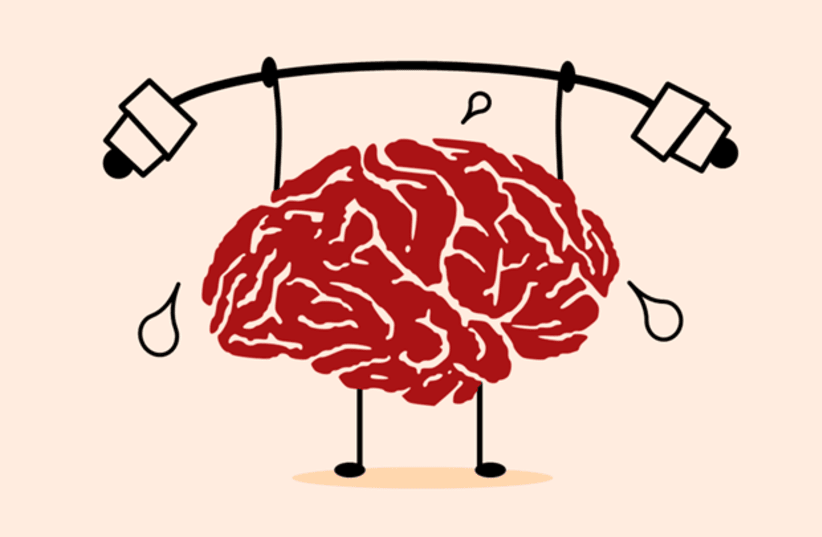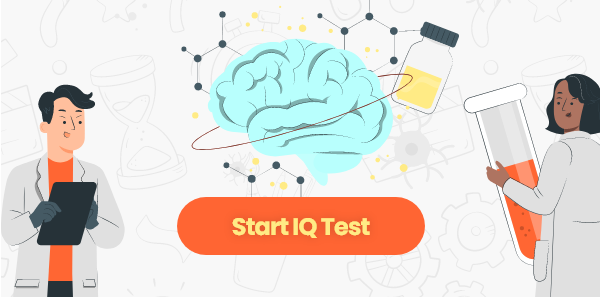Curious about your own IQ? Discover your intellectual potential by taking the IQ test on >> Quick IQ Test<<. Unleash the power of your mind and uncover your cognitive abilities with just a few simple clicks. Find out where you stand on the intelligence scale and embark on a journey of self-discovery. Take the Quick IQ Test now and unlock the secrets of your intellect!
Table of Contents
- Introduction
- Understanding IQ
- The Definition of Average IQ
- IQ Distribution
- IQ Tests and Standardization
- Interpreting IQ Scores
- Factors Affecting IQ
- The Limitations of IQ Testing
- IQ and Intelligence
- IQ and Success
- IQ and Education
- IQ and Emotional Intelligence
- Can IQ be Improved?
- Conclusion
- Frequently Asked Questions
Introduction
Intelligence is a fascinating aspect of human cognition, and one way to measure it is through an IQ test. The concept of IQ, or Intelligence Quotient, has been widely studied and used as a means to assess intellectual capabilities. In this article, we will explore what an average IQ signifies and delve into its implications.
Understanding IQ
IQ is a numerical representation of an individual's cognitive abilities, particularly in relation to problem-solving, reasoning, and comprehension skills. It provides a standardized measure to compare intellectual capacities across populations. IQ tests evaluate various cognitive domains, including verbal, mathematical, spatial, and logical reasoning.
The Definition of Average IQ
The term "average IQ" refers to the midpoint of the IQ scale, which is typically set at 100. An IQ score of 100 is considered to be within the average range, indicating an individual possesses cognitive abilities that align with the general population's average performance.
IQ Distribution
IQ scores follow a normal distribution curve, with the majority of the population falling within the average range. The distribution is designed so that 68% of the population falls within one standard deviation of the mean, which translates to IQ scores between 85 and 115. Higher and lower IQ scores become progressively less common as they deviate further from the average.
IQ Tests and Standardization
IQ tests are designed to measure intelligence objectively and are carefully standardized to ensure accuracy and reliability. They consist of a series of questions and tasks that assess different aspects of cognitive functioning. To establish the IQ scale, test scores are normed using a representative sample of the population. This process allows for a meaningful interpretation of individual IQ scores.
Interpreting IQ Scores
IQ scores are often categorized into different ranges to simplify interpretation. The classification may vary slightly across different tests, but a common breakdown is as follows:
- Below 70: Intellectual Disability
- 70-84: Below Average
- 85-114: Average
- 115-129: Above Average
- 130 and above: High Intelligence
It's important to note that IQ scores are not an absolute measure of a person's worth or potential. They represent a specific aspect of cognitive ability and should be considered in conjunction with other factors.
Factors Affecting IQ
Several factors can influence an individual's IQ. While genetics plays a role, environmental factors such as upbringing, education, nutrition, and access to resources also have a significant impact. Early childhood experiences, exposure to stimulating environments, and quality education can contribute to cognitive development and potentially enhance IQ.
The Limitations of IQ Testing
IQ testing has its limitations. It primarily focuses on cognitive abilities and may not fully capture other forms of intelligence, such as emotional intelligence, creativity, or social skills. Moreover, cultural biases in test design and administration can lead to discrepancies in results among different populations. It's essential to recognize the potential for these limitations when interpreting IQ scores.
IQ and Intelligence
IQ scores provide an estimation of an individual's intellectual capabilities, but they are not an exhaustive measure of intelligence. Intelligence encompasses a broader range of skills, including problem-solving, critical thinking, adaptability, and creativity. While IQ tests provide valuable insights into cognitive abilities, they do not capture the entirety of a person's intellectual potential.
IQ and Success
There is a correlation between IQ and certain measures of success, such as academic achievements and job performance. However, it's important to note that IQ is just one factor among many that contribute to success. Non-cognitive skills, motivation, perseverance, and emotional intelligence also play crucial roles in determining an individual's accomplishments.
IQ and Education
IQ can influence educational outcomes to some extent. Higher IQ scores may indicate a greater aptitude for learning, comprehension, and problem-solving, which can facilitate academic success. However, it's important to remember that intelligence is not fixed, and individuals with lower IQ scores can still excel academically with the right support, motivation, and learning strategies.
IQ and Emotional Intelligence
Emotional intelligence refers to the ability to recognize, understand, and manage one's own emotions and the emotions of others. While IQ and emotional intelligence are distinct constructs, they are not mutually exclusive. Both play significant roles in personal and social functioning, and a balance between cognitive and emotional abilities is essential for overall well-being.
Can IQ be Improved?
While IQ is believed to have a genetic component, it is not entirely fixed and can be influenced by various factors. Intellectual stimulation, education, exposure to diverse experiences, and ongoing cognitive engagement can potentially enhance cognitive abilities and improve IQ scores to some extent. However, it's important to note that significant improvements in IQ are rare, and individual results may vary.
Conclusion
An average IQ score represents an individual's cognitive abilities falling within the general population's average range. IQ tests provide a standardized measure to assess intellectual capacities, but they are not exhaustive indicators of intelligence. While IQ can influence certain aspects of life, success is influenced by a myriad of factors, including non-cognitive skills, motivation, and emotional intelligence.
Frequently Asked Questions
Is an average IQ score a cause for concern?
- No, an average IQ score is within the normal range and does not necessarily indicate any concerns. It's essential to consider IQ scores alongside other factors and individual strengths.
Can IQ scores change over time?
- While IQ scores can change to some extent, significant improvements or declines are relatively uncommon. IQ is influenced by various factors, including genetics and environmental factors.
Can a person with a below-average IQ succeed in life?
- Yes, individuals with below-average IQ scores can still achieve success in various domains of life. Success is influenced by multiple factors, including non-cognitive skills, motivation, and perseverance.
Are there alternative measures of intelligence besides IQ?
- Yes, there are alternative measures of intelligence that encompass different aspects, such as emotional intelligence, creativity, and social skills. IQ is just one way to assess cognitive abilities.
How can I improve my cognitive abilities?
- Engaging in intellectually stimulating activities, pursuing education, seeking diverse experiences, and maintaining an active and healthy lifestyle can help enhance cognitive abilities.
Ready to explore the depths of your intelligence? Take the leap and discover your IQ today with >>Quick IQ Test. Uncover your hidden potential, embrace your unique abilities, and pave the way for a brighter future. Start your IQ journey now and let your intellect shine!


